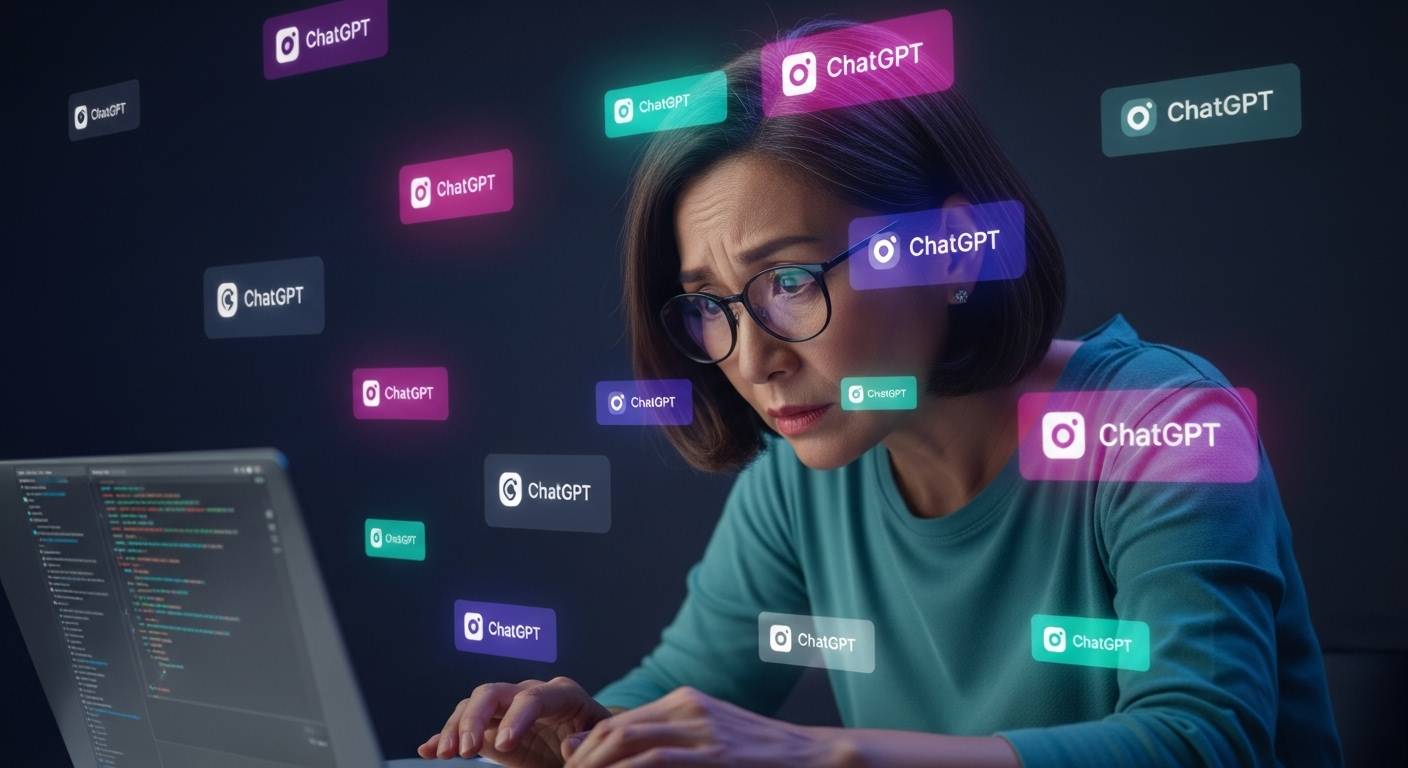If someone had told me five years ago that a chatbot would become my daily companion—my brainstorming partner, editor, therapist, and productivity coach—I would’ve laughed. Yet here I am, like millions of others, opening the ChatGPT app first thing every morning and using it as if it were an extension of my brain.
But here’s the catch: it kind of is.
While ChatGPT, developed by OpenAI, has made life incredibly convenient, it has also quietly altered the way I think, write, solve problems, and interact with information. In many ways, ChatGPT broke my brain—but strangely, I still can’t imagine going a day without it.
Let me explain.
The Day My Brain Checked Out

I used to pride myself on deep work. Researching, outlining, editing—all those things used to take hours of focused energy. But when I discovered chatgpt online, it was like switching from dial-up to fiber optic internet. Need a blog post? Done in minutes. Want a social media strategy? No problem. Struggling with a tough email? ChatGPT writes it better than I could.
It was a dopamine rush.
Suddenly, I found myself asking ChatGPT for everything:
- What to cook
- How to respond to texts
- Business ideas
- Emotional support
- Even journal prompts
At first, it was amazing. Then I noticed something strange: when I sat down to write without the bot, I froze. I’d forgotten how to start. The once-sharp edge of my thinking was getting… dull.
ChatGPT didn’t just help me think—it started doing my thinking for me.
How ChatGPT Changes the Brain
Experts have started researching the neurological impact of AI tools like chatbot gpt and chat gpt online. What they’ve found isn’t surprising:
- Reduced cognitive effort
- Shortened attention spans
- Decreased memory retention
- Reliance on external “thinking agents”
It’s not that ChatGPT breaks your brain literally, but it does outsource parts of your mental process. And when you stop using certain brain functions, they weaken—just like muscles.
I began struggling with basic tasks like brainstorming, outlining ideas, or even remembering names of concepts I used to recall instantly.
I wasn’t alone. In communities of ChatGPT users, people shared the same experience: more productive but less present, more efficient but less mentally agile.
Why I Still Use ChatGPT Every Day
Despite all this, I still open chatgtp (as some mistakenly type it) every day—and for good reason.
✅ 1. It Saves Me Hours
From email drafting to idea generation, ChatGPT online is like having a 24/7 assistant. I don’t need to spend 45 minutes struggling with copy anymore.
✅ 2. It Helps Me Learn Faster
ChatGPT doesn’t just give answers—it explains. I’ve used it to understand complex topics in finance, science, psychology, and more.
✅ 3. It’s a Powerful Creative Partner
Yes, it can limit creativity if overused. But if you use it as a collaborator, not a crutch, it can enhance your writing and thinking in exciting ways.
✅ 4. It Boosts My Business
From writing marketing funnels to summarizing meetings, chat gpt app has added tremendous value to my work. It’s like having a team of writers and analysts rolled into one.
🔁 The Psychological Trade-Off
There’s a paradox here.
I know ChatGPT affects my brain’s cognitive independence. I know I sometimes default to it when I should be solving problems on my own. Yet, I also know that not using it feels like leaving the house without my phone.
That’s the thing about powerful tools: they change us.
Search engines changed how we remember. GPS changed how we navigate. Social media changed how we connect.
ChatGPT is changing how we think.
The danger lies not in using it, but in depending on it so much that our original thinking atrophies.
How I’ve Rebalanced My Brain (While Still Using ChatGPT)
To avoid becoming completely AI-dependent, I’ve adopted a few habits that help me stay mentally sharp while using chat gpt com daily:
✍️ 1. Manual Draft First, AI Second
I force myself to write a rough outline or paragraph before asking ChatGPT. That way, I don’t lose the creative muscle.
🧘 2. Daily Non-Digital Brain Time
At least 30 minutes of non-screen mental activity: journaling, reading physical books, walking without headphones.
🔁 3. “Silent Mode” Thinking
Whenever I have a question, I pause and try to think it through myself before asking the AI.
💬 4. Ask ChatGPT Questions, Don’t Just Take Answers
This creates a dialogue and forces me to engage with the content, not just consume it passively.
Conclusion: Be the Master, Not the Passenger
ChatGPT broke my brain—but it also rebuilt my workflow.
The key is conscious use. Treat ChatGPT not as a savior, but as a smart assistant. Be aware of what it does for you—and what it might be taking away.